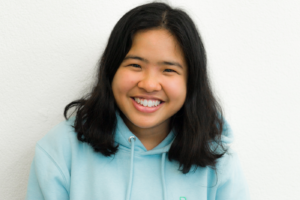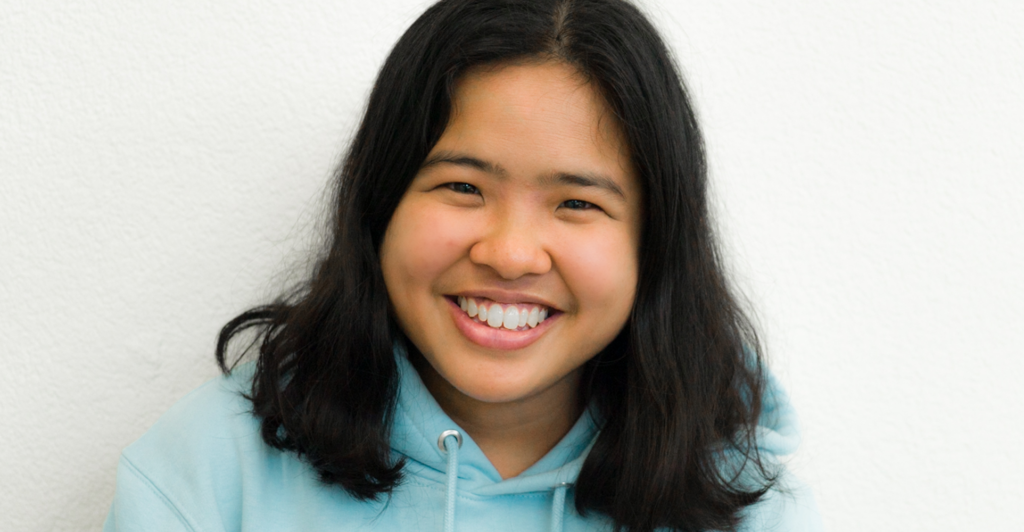We’re taking time to get to know the members of the GSA’s Early Career Scientist Committees. Join us to learn more about our early career scientist advocates.

Uyen Linh Ho
Community and Membership Engagement Subcommittee
Center of Integrative Genomics, University of Lausanne, Switzerland
As a PhD-trained scientist, you have many career options. What interests you the most?
My motivation in science has long been driven by the improvement of human life in aspects like health, and access to food and fuel. That is why I am interested in fields like biotechnology and synthetic biology. With biotechnology, for example, we can optimize processes to be able to produce goods such as vaccines, food, and enzymes, making them affordable to access. With synthetic biology, we can create new processes for making bio-plastic or bio-fuel that can preserve the environment in the long run.
Scientific tool development also interests me. It is fascinating how we can develop and use tools to reduce our issues in the world. For instance, CRISPR Cas9, derived from the adaptive immune system of bacteria against viruses, was made into a powerful tool of this century to understand genes in more depth. When combined with a base editor, Cas9 became so evolved that it is now used to reduce the severity of disease by inducing mutations in target genes—for example, treating heterozygous familial hypercholesterolaemia by silencing the PCSK9 gene. For me, this inspiring success in science is one of the reasons why I first wanted to study in this field, and I hope we will develop more tools to help tackle the world’s current and future issues.
In addition to your research, how do you want to advance the scientific enterprise?
In the current scientific community, three things have emerged or become important. One is mentorship. Obtaining a PhD or a job afterwards—whether in academia or industry—is rocky for several people, who are left to struggle along the way. Mentorship is a great platform to teach and pass advice from experienced scientists to early ones. Learning from others is a way to set future scientists with more confidence and ease. In the Community and Membership Engagement subcommittee, we are about to implement a mentorship program with the goal of supporting early scientists in their next career step. This program will match experienced alumni with early career scientists who are at the end of a career path or transitioning to the next one and will allow those alumni to follow the early scientists for six to 12 months throughout their career decisions.
The second important element is inclusivity in terms of considering the gender gap and diversity in hiring and making resources available to people with disabilities. Gender equality has been centered more than ever. Despite efforts, the gap is still apparent in higher-ranking jobs, so new and innovative ways to make people aware and implement measures of change need to be taken. I hope to learn from seminars given for GSA members to become more sensitive about inclusivity issues and make others more aware of them.
Third, mental health has received much attention in previous years. Especially since COVID-19, more people have become more aware than ever before of this topic. As grad students suffer from anxiety, depression, and imposter syndrome because of previous experiences in universities and their environments, we urgently need to act upon it. In the Community and Membership Engagement subcommittee, we are pushing Jessica Velez’s idea to create peer networking groups to be able to communicate about issues and help each other to find solutions, which might reduce stress and anxiety. I hope that within this community we will offer more initiatives to tackle mental health issues.
As a leader within the Genetics Society of America, what do you hope to accomplish?
Since my studies began, I have always been involved in making projects happen and helping students and peers in many ways. Being the first in my family to gain a university degree in biology, it was not so trivial to me where to get the resources I need to thrive in my studies and work. Hence, I advocate bringing resources to people in need, especially because not everyone has a nurturing environment to learn from others. By being in the GSA, I hope to make free resources available in the form of seminars, workshops, mentorship programs, etc. I also like to work with people from different backgrounds to achieve the goal of transforming GSA into a resourceful community. Moreover, the Early Career Leadership Program has given me opportunities to network with others, be aware of issues, and have the freedom to have a say in decision processes—for example, for applications and the subcommittee program direction. With this skill set, I hope to become a better leader than before to be able to lead people in the future.
Previous leadership experience
February 2020–ongoing: University of Lausanne
Instructor of iGEM UNILausanne team 2020-2022, iGEM judge for 2020-2022
January 2020–ongoing: University of Lausanne
Founding member of the Social Committee of the Center for Integrated Genomics
September 2019: ETH Zurich
Organizer of the Systems Biology PhD retreat
January 2019: ETH Zurich
Organizer of the institute’s PhD Retreat
August 2013–December 2021: throughout Germany
Member of the Biotechnological Student Association (btS) in Bielefeld and Freiburg, key account manager for the company “headway engineer” and “Promega,” project leader for the annual general assembly in June 2018, lead member of work groups of finances and project funding
October 2012–June 2017: Faculty of Technology, Bielefeld University
Member of the student association (student representative in commissions, such as the professor commission for the succession of a retired professor and quality improvement commission)




